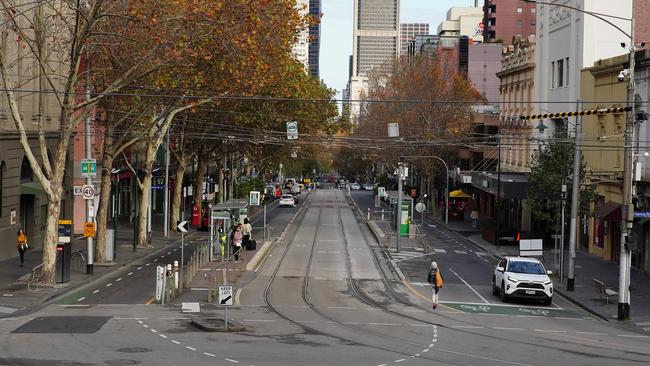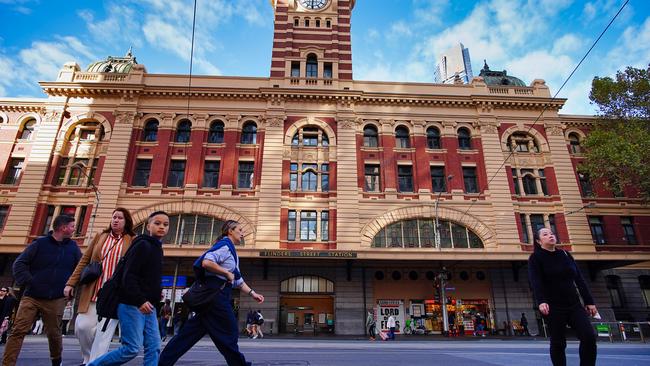City of Melbourne plan to block cars from key CBD streets slammed by Victorian Transport Association
A peak transport body has hit out at the City of Melbourne’s plan to limit vehicle access in the CBD, fearing it will have a negative impact on businesses.

News
Don't miss out on the headlines from News. Followed categories will be added to My News.
Victoria’s peak representative group for the freight and logistics sector fears a council plan to limit vehicle access in the CBD could have a detrimental impact on city businesses and road transport workers.
The Victorian Transport Association has slammed the City of Melbourne’s draft Future Streets Framework for having “a total and complete disregard for freight, and the reliance of small businesses and city traders on the transport industry”.
The plan would see car access restricted in parts of the Hoddle Grid to prioritise pedestrians, cyclists and public transport users and “reduce through traffic”, while city laneways could be closed to vehicles altogether.
The framework will be released for community consultation following a council workshop.
Chief executive Peter Anderson said the framework “all but ignored the freight industry”.
“Once again, hardworking transport workers are being marginalised from doing their work safely and servicing their customers and the community,” Mr Anderson said.
“We see evidence of this time after time, with loading zones being abolished to accommodate dedicated bicycle lanes, four-lane streets reduced to two to accommodate tram super stops, and now under this plan, the likelihood of some parts of the city grid completely off limits to motor vehicles.”
Under the proposed framework, loading, waste collection and maintenance vehicles would be allowed “intermittent access” to city spaces including at sections of Flinders, Elizabeth, Collins and Swanston Streets.

Loading vehicles accessing city laneways would be provided with timed entry “for necessary service and loading and unloading access” and “flexible spaces” for loading and servicing at convenient locations.
Limiting access would help “minimise conflict with efficient transport modes” and support “activation and pedestrian movement”, according to the plan.
Mr Anderson said while it was important to attract workers and shoppers back to the CBD, it should not be “at the expense of small business owners and sectors like transport that service them”.
“Over 5000 commercial vehicles service the city every day, including the garbage collectors, concrete trucks, delivery vans, rigid trucks and ancillary vehicles that need access, parking, and flexibility,” he said.
“There are unintended consequences that proposals like this are oblivious to or simply ignore, such as goods having to be delivered on trolley and pallet jacks at great injury risk to delivery workers and pedestrians because there aren’t any loading zones nearby.”
Lord Mayor Sally Capp said the council had no plan to ban cars and “vehicles will always be welcome in the Hoddle Grid”.
“We understand the importance of delivery vans, freight and couriers to support our traders to do business,” Ms Capp said.
“We want to welcome as many people into the city as possible, by whatever mode of transport they choose.”



